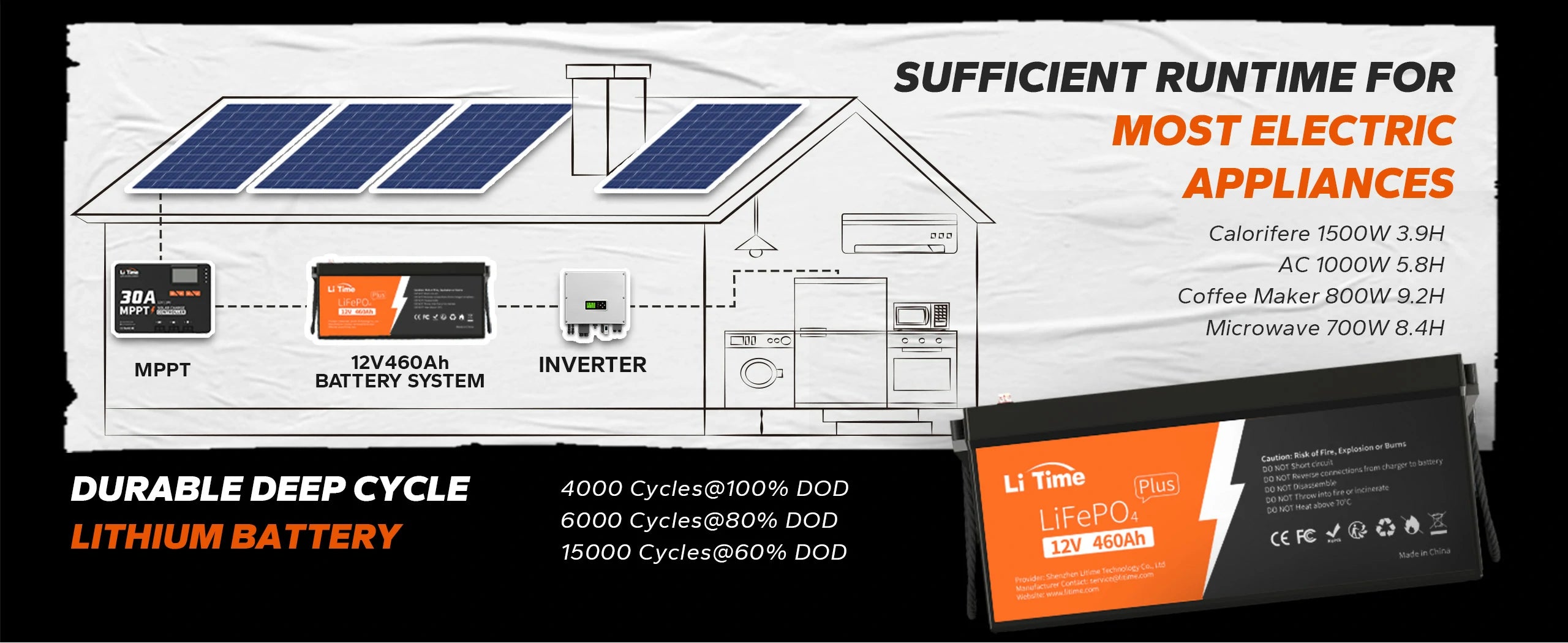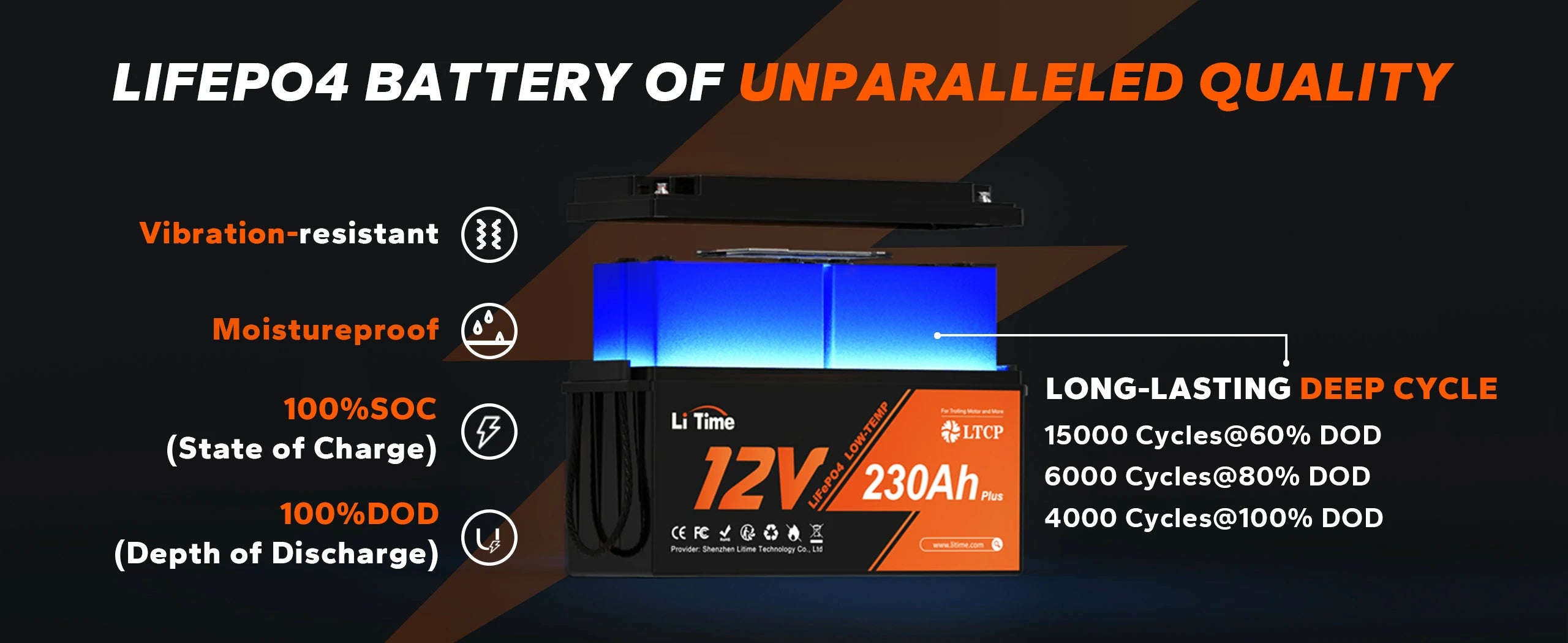When we think about home battery storage systems, we frequently associate them with solar panels. This common pairing is indeed a match made in renewable energy heaven, creating a sustainable loop of energy production and storage. However, the question arises: is it a package deal or can you have home battery storage without solar panels? The answer is a resounding yes, and in this article, we'll dive into the benefits and considerations of having a standalone home battery storage system.
Part 1: Understanding Home Battery Storage Systems
Home battery storage has become an increasingly attractive solution for energy management and security. These systems store electrical energy that can be used at a later time, providing backup power in case of outages or enabling the use of stored electricity during peak demand times to save on electricity costs.
Part 2: Does a Storage Battery Work Without Solar Panels?
In today's energy-conscious world, a storage battery can be a valuable asset even without solar panels. These versatile components are designed to capture and store energy from various sources, offering benefits beyond reliance on solar panels. Let's take a closer look at how a storage battery functions without solar panels and the advantages it can offer.
2.1 Functioning of a Storage Battery Without Solar Panels
A storage battery operates by storing energy that can be drawn upon when needed. While it is commonly paired with solar panels to store excess solar energy for use at night or during periods of insufficient sunlight, a storage battery can also be charged from the electrical grid without solar panels.
Charging from the Grid
Homeowners can take advantage of off-peak hours and lower electricity rates to charge their storage batteries, leading to potential savings on energy costs. The stored energy can then be used during peak hours when electricity is more expensive, offering a cost-effective solution.
Emergency Power Supply
In the event of grid outages, a storage battery can provide backup power. By charging from the grid when it's available and reliable, the stored energy in the battery acts as an energy reserve during blackouts or natural disasters, ensuring peace of mind for homeowners. Nowadays, LiFePO4 lithium batteries are becoming popular as the backup power.
Integration with other Renewable Sources
In addition to solar power, storage batteries can also integrate with other renewable energy sources such as wind turbines or hydroelectric systems. This flexibility allows homeowners to maximize their renewable energy use and minimize their reliance on traditional grid power.
In conclusion, storage batteries are not solely reliant on solar panels and can function independently by capturing and storing energy from the grid or other renewable sources.
By understanding how a storage battery works without solar panels and the benefits it can provide, homeowners can make informed decisions about their energy needs. Whether it's cost savings, emergency power supply, or integration with other renewable sources, a storage battery offers versatile solutions for modern energy demands.
Part 3: Why LiFePO4 Lithium Batteries a Good Choice for Home Emergency Power Supplies
When it comes to selecting a storage battery for an emergency power supply, one stands out in terms of safety, performance, and longevity: the LiFePO4, or Lithium Iron Phosphate battery. This energy storage solution is growing in popularity among homeowners for several compelling reasons.
Superior Safety Profile
LiFePO4 batteries are revered for their stable chemistry, which significantly reduces the risk of thermal runaway and makes them one of the safest lithium battery technologies available. In the rare instance of a failure, LiFePO4 batteries are much less likely to catch fire or explode compared to other lithium-ion batteries, providing an added layer of safety for home energy storage.
Longevity and Efficiency
One of the most remarkable attributes of LiFePO4 batteries is their long cycle life. They can go through thousands of charge-discharge cycles before experiencing significant capacity reduction. This trait ensures that homeowners will have a reliable emergency power supply for years to come. Furthermore, LiFePO4 batteries maintain high efficiency over a wide range of temperatures, making them suitable for diverse climates and conditions.
Compatibility and Ease of Use
LiFePO4 batteries can easily integrate into existing home energy systems and are straightforward to maintain, with no need for frequent watering or equalization charging as with lead-acid batteries. Their ‘plug-and-play’ nature means they can be swiftly set up as an emergency power back-up, readily discharging their stored energy when the grid fails without any complicated activation processes.
Eco-Friendly and Economical
In addition to performance benefits, LiFePO4 batteries have minimal negative environmental impact compared to their lead-acid or nickel-based counterparts. They contain no heavy metals and no corrosive acids, and they typically have a lower lifetime cost due to their longevity and minimal maintenance requirements. While the upfront cost may be higher than some alternatives, the long-term cost per cycle often justifies the initial investment.
Versatile Applications
Whether you're looking to power critical loads like lights, refrigeration, and communication devices or planning for a more comprehensive home power solution, LiFePO4 batteries can be scaled to meet your specific needs. With the ability to discharge deeply without damage, they offer a robust and versatile solution that is perfectly suited for emergency backup power.
In summary, LiFePO4 lithium batteries are an excellent choice for those looking into home storage batteries for emergency power supplies. Their unparalleled safety features, long service life, and environmental credentials make them a smart investment for anyone considering a standalone battery storage system or looking to complement their current home energy setup. With LiFePO4 batteries in place, homeowners are not only prepared for unexpected power outages but also benefit from a reliable, efficient, and sustainable energy storage solution.
LiTime's LiFePO4 lithium batteries are utilized by Grade A cells to built, which can offer 4000-15000 cycles to provide a reliable power source for a remarkable 10-year lifespan.
Part 4: Benefits of Home Battery Storage Without Solar Panels
Home battery storage systems have primarily been popularized in conjunction with solar panels, as they provide a way to store excess energy generated during peak sunlight hours for use at night or during cloudy days. However, even in the absence of solar panels, there are significant benefits to installing a home battery storage system:
Energy Arbitrage: Home battery systems allow you to take advantage of time-of-use electricity rates, where the cost of electricity varies throughout the day. You can charge the battery when rates are low (typically at night) and use the stored electricity during peak hours when rates are higher, potentially reducing your electricity bill.
Emergency Backup Power: Having a battery storage system provides you with an emergency power source during outages. It ensures that critical appliances, such as refrigerators, medical equipment, and communication devices, remain operational when the grid goes down.
Increased Energy Independence: A home battery can reduce your dependence on the grid. This can be particularly beneficial in areas with unreliable grid infrastructure or frequent power outages.
Grid Stabilization: By smoothing out your electricity demand, home batteries can help stabilize the electricity grid. If many households and businesses use battery storage, it can reduce the need for utilities to fire up expensive and polluting "peaker" plants that are used during times of high demand.
Potential Future Solar Integration: If you might consider solar panels in the future, installing a battery system now can be a step toward a more integrated renewable energy solution for your home.
Environmental Benefits: Although not as substantial as when paired with renewable energy sources, using a home battery can still have environmental benefits. For example, by reducing the need for peaker plants, which often run on fossil fuels, you're indirectly helping to decrease greenhouse gas emissions.
Faster Adoption of Renewable Energy: Increasing the number of homes with installed battery storage can potentially support the wider adoption of renewable energy on the grid by managing variability and providing a buffer against fluctuations in generation.
As the technology matures and prices continue to fall, it's possible that more homes will adopt battery storage even without solar panels, reaping these benefits and contributing to a more resilient, efficient, and sustainable energy system.
Frequently Asked Questions
1. Is It Possible to Integrate Solar Panels With Your Existing Battery System Later On?
Absolutely, it is feasible to integrate solar panels with an existing home battery system as long as it is compatible with solar input. A significant number of battery storage solutions are crafted to be solar-compatible, providing the flexibility to seamlessly incorporate solar panels at a subsequent time of your choosing.
2. How Much Does a Home Battery Storage System Cost in the US?
According to Marketwatch, the cost of lithium-ion batteries for home energy storage can fluctuate based on the manufacturer and the capacity of the system. Typically, homeowners may anticipate investing approximately $10,000 to $15,000 for a standalone battery system, independent of solar panel integration.
LiTime successfully delivers value to customers by harnessing robust partnerships with manufacturers and streamlining their supply chain operations. They maintain their focus on providing cost-efficient solutions without sacrificing the quality of their products. As a result, LiTime's LiFePO4 batteries represent a prudent investment for consumers who seek optimal performance without a hefty price tag.
3. Can I Use Solar Panels and Inverters Without a Battery?
Absolutely, solar panels and inverters can function without the addition of a battery. In this configuration, solar panels harvest energy from sunlight, and the inverter converts this into alternating current (AC) that's ready for immediate use in powering household devices. This direct consumption setup can also enable you to feed surplus energy back into the electrical grid, subject to the energy policies in your area.
Yet, it's important to note that in the absence of a battery, you won't be able to store extra energy produced during peak sunlight hours for future use. Consequently, grid reliance remains for those periods when solar generation does not meet your energy demand, such as nighttime or overcast days. Incorporating a battery into your solar system could accrue additional benefits, including enhanced energy autonomy and potential savings on electricity costs.
Conclusion: Making the Right Choice for Your Home
Home battery storage without solar panels is not only a possibility but also a practical alternative for many households looking to enhance their energy independence and efficiency. By assessing your specific energy needs, budget constraints, and environmental goals, you can decide if a standalone battery storage system is right for you.
As the future of home energy continues to evolve, it's clear that battery storage plays a pivotal role in our transition to a more resilient and sustainable energy infrastructure—regardless of whether it's paired with solar panels.










